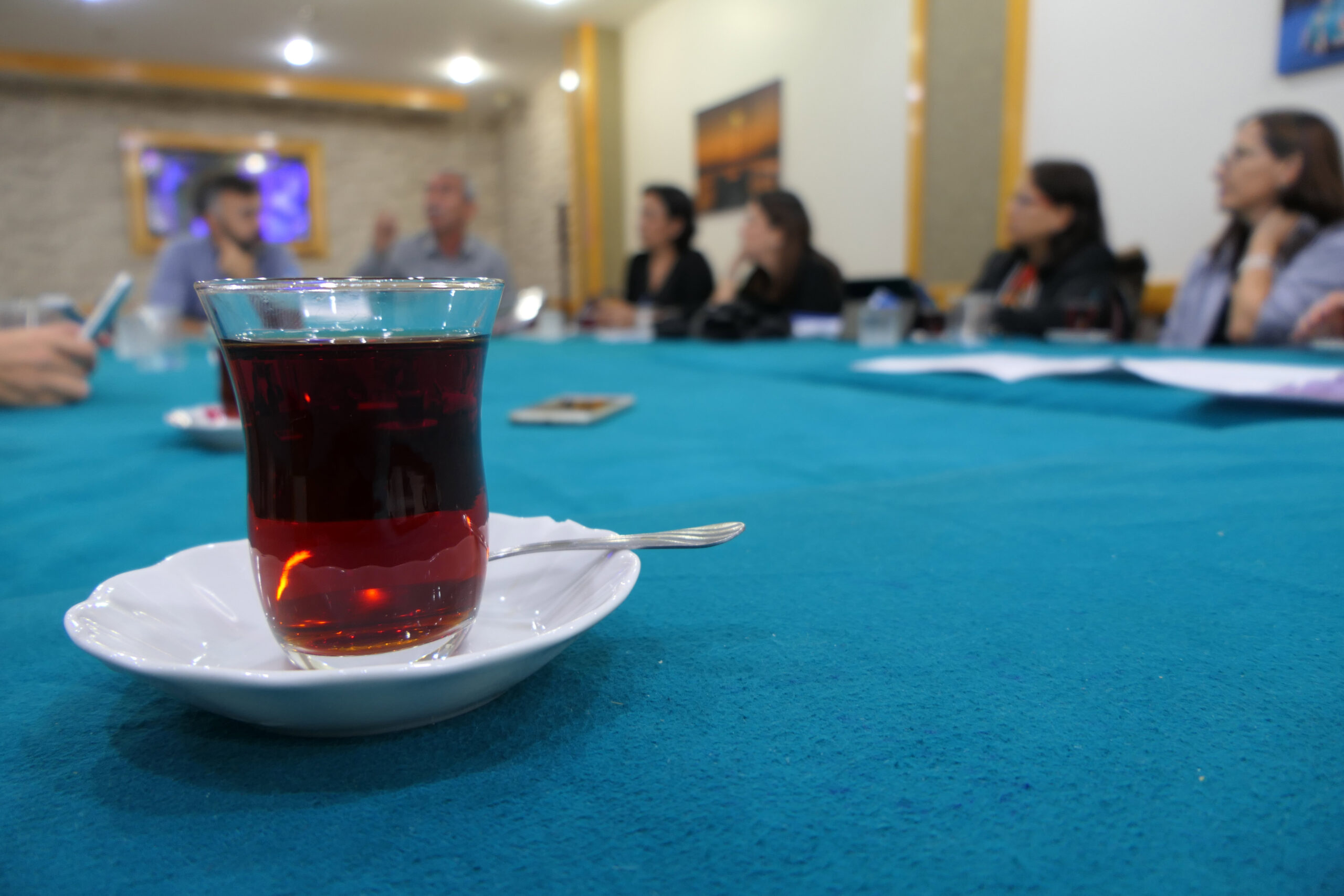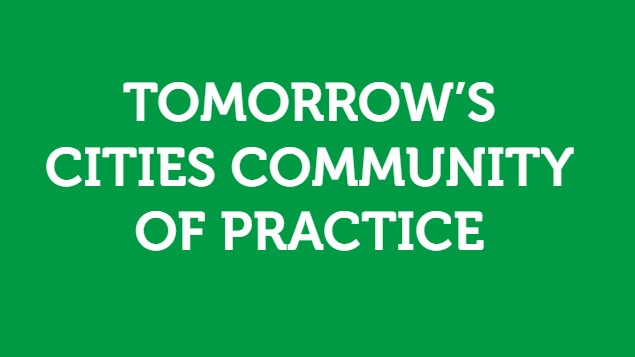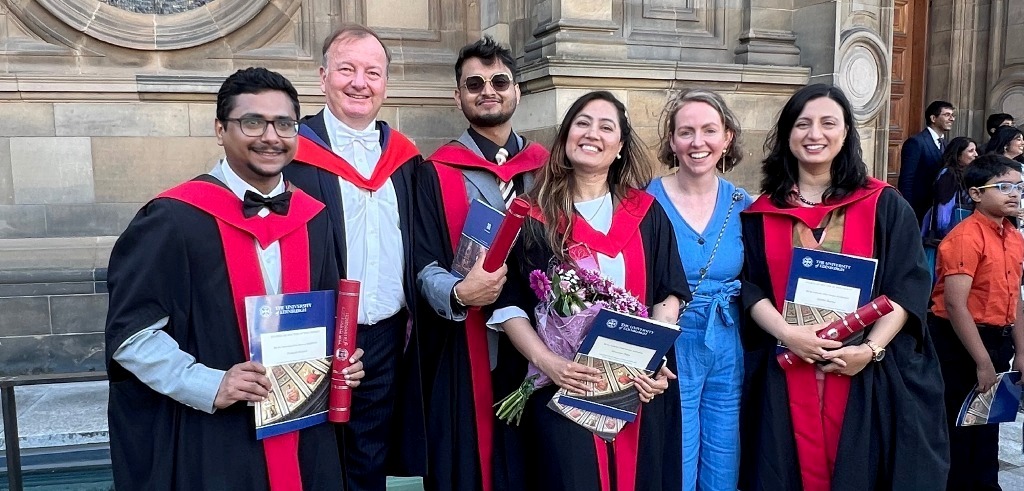
- Close
17/12/2019 | Global
Is Tomorrow’s Cities fit for the 2030 Agenda?

Developing existing partnerships and forging new ones through a site visit to Fikirtepe, Istanbul, where we listened to the community leader. Tea bonds us together during this key moment of shared learning about the community perspective of urban transformation.
Science requires partnerships to help bring solutions to address global challenges—but these can take many forms. This blog explores how well Tomorrow’s Cities is meeting some particular partnership challenges presented by the 2030 Agenda for Sustainable Development.
The 2030 Agenda for Sustainable Development, adopted by all United Nations Member States in 2015, provides a shared blueprint for peace and prosperity for people and the planet, now and into the future.
It brings together the ambition of several agreements, some of which are particularly relevant to disaster risk reduction:
The Sustainable Development Goals, which are overarching and their central ambition is to leave no-one behind in achieving global sustainable development. There are specific targets for Disaster Risk Reduction. More than this, the SDGs point to the interdependence of sectorial ambitions – with success in each of the 17 goals depending on progress in others.
The Paris Agreement has come to symbolise the urgency and scale of structural as well as individual change required if we are to avoid runaway climate change.
The Sendai Framework calls for governments to collaborate with non-state actors and to build back better so that risk management becomes a tool for progressive development not only a ring fencing of historic patterns.
The Agenda for Humanity calls for localization – for disaster survivors to be at the centre of shaping their own recovery and reconstruction processes.
There are many different forms of partnership with different visions, memberships, rules and aims. All need to reflect on their ability to deliver impactful research in the context of the 2030 Agenda. If we distil down the 2030 Agenda, there are perhaps four key challenges for research partnerships – complexity, urgency, being value aware and people centred – and these raise questions for how fit Tomorrow’s Cities’ partnerships are to meet these challenges.
Complexity
Complexity highlights interconnectivity and emergence. This requires research that is encompassing and nimble enough to recognise emergent phenomena – and therefore underlines a need for flexibility in research practice.
Can adaptability be built into research partnerships – to follow new lines of enquiry or shift in membership – whilst maintaining transparency and accountability for research funders?
In
Tomorrow’s Cities, the two stage funding process aims exactly at enabling emergent research questions to be addressed. The interdisciplinarity in each city and the close working between city partners and researchers aims to bring interconnectedness to the fore. In each city the impact aim of shifting from retrospective risk management, including for example emergency response or early warning, to integrated, risk informed urban planning also speaks firmly to this.
Urgency
How do we cope with the apparently countervailing demands of urgency and rigor? It has long been a complaint of research users, that research just takes too long to be useful. The urgency to inform policy processes to avoid catastrophic climate change while maintaining or enhancing inclusive governance ramps this pressure up.
Are there smart ways of working in partnership that can offer good enough rapid research outcomes, while preserving the rigor and legitimacy of scientific method?
Tomorrow’s Cities is a five-year programme, so our full findings won’t come as quickly as some policy makers and practitioners might like. Research takes time and the Hub places emphasis on building relationships within and between cities as the primary engine for transitioning to integrated risk management. This said, the first two years of already funded work will build a strong foundation and good pool of relationships that could then be ready for more targeted rapid work in the second phase – if policy makers, practitioners and those at risk make the case.
Value awareness
Progressive development requires members of a partnership to share a common set of values and understanding on what development futures are desirable, and how risk management can help enable these. This means partnerships need to be aware of their external environment, which may welcome or push back against their activities. Partnerships also have to be aware of both external and internal relationships raising questions around both politics and respectful consideration of differing views and perspectives.
How fit are existing partnerships to review their external and internal political and ethical positions?
In Tomorrow’s Cities, We can’t reach our goals as individuals but only as a partnership, so how can we as individuals contribute to strengthening partnership? As research gets underway and new staff are integrated, so our roles and responsibilities for one another will change, and the ways our partnerships function to support research and impact activity need to be reflected upon. The Hub has a partnership plan and workshops are scheduled for early 2020, once post-doc staff are in post. This will provide some structure for reflections.
People centred
It seems every new round of technological innovation – from early warning and forecast based early action to smart cities, and now AI – starts by placing the human at the edges of research interests, communication, operations, safeguarding and ethics. This is an old challenge; technology is driven by its own internal motivation leading to innovations that then search for application.
How does technology driven innovation sit with the need for people centred, challenge led research? How can partnerships resolve this tension?
In
Tomorrow’s Cities, the city teams will be developing new analysis and deploying new technology, in the broadest sense. This includes considering any risk management plans and organisational, practical or policy recommendations as ‘new technologies’. The interdisciplinary structure of each city research work package should prevent narrow technologically deterministic working, but this does need to be held in constant review. Similarly, the value of technology to bring people together needs to be maximised and normalised. Social analysis by itself can often sit on the shelf and all research needs to be oriented to be people centred for impact.
So, how does the Hub score?
The effort we have all put into building our partnerships provides a firm foundation – the main message here is the importance of continuing to reflect on our work and the relationships we all have with each other. We should maintain efforts to talk across work packages, cities, disciplines and operational elements as much as possible.
Mark and John, with thanks to Dave Bell
If you have thoughts or comments on these relfections, please let them be known! For example, you could write a blog in response (get in touch with Dave via communication@tomorrowscities.org) or simply tweet about it (@urbanriskhub and #tomorrowscities).



